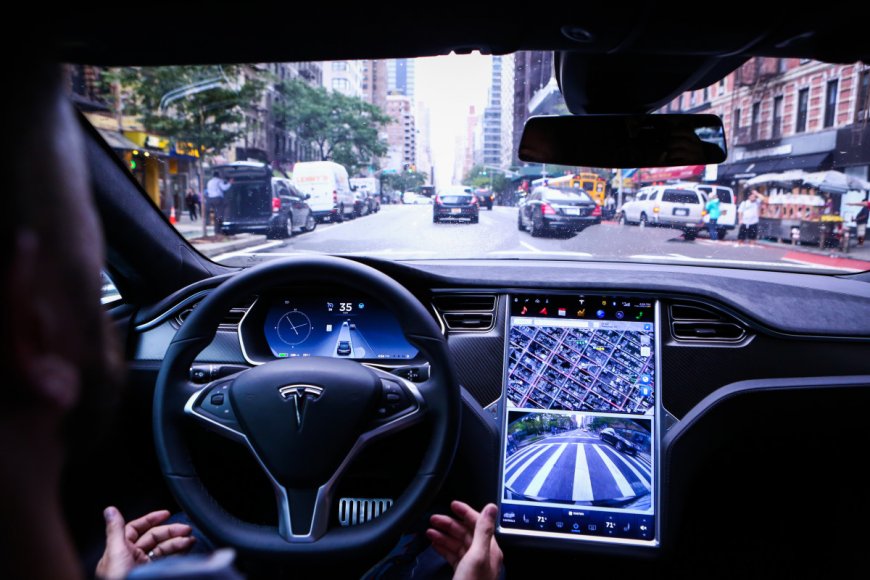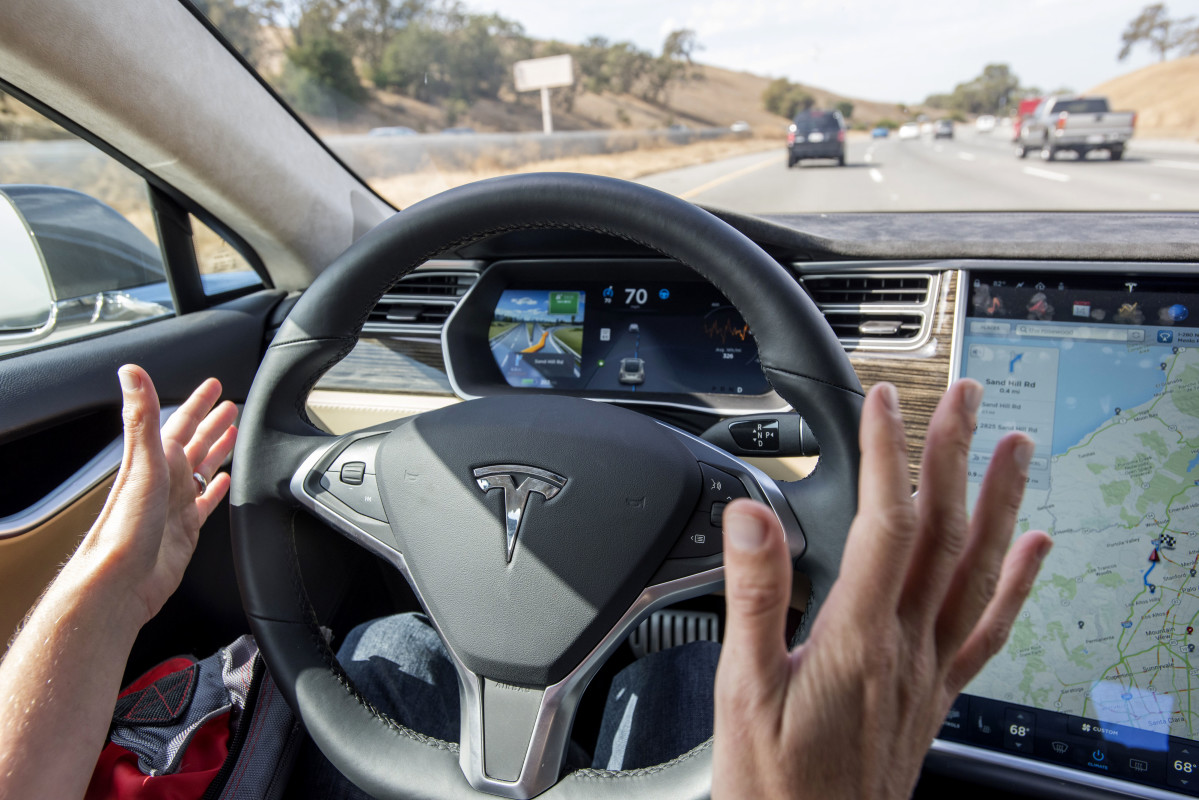New study exposes huge flaw with Tesla Autopilot and its copycats
Insurance Institute for Highway Safety and Massachusetts Institute of Technology research suggests that drivers outsmart technology with abhorrent effects.

Tesla's (TSLA) Autopilot driver assistance system is one amongst the automakers' most well-known technologies, promising drivers a hands-free driving experience in equipped vehicles.
Though it appears like a feature straight out of a futuristic science fiction novel or movie, in point of fact that it could possibly perhaps well be too good to be true.
In a recent report first picked up by Business Insider, current and former Tesla employees tasked with making improvements to Autopilot told the publication that every now and then, their colleagues were intent on teaching it to drive more "human-like," teaching it to disobey traffic signs like "No Turn On Red" or "No U-Turn"
Related: Tesla employee exposed a perilous safety flaw in Autopilot
Additionally, U.S. prosecutors are investigating whether Tesla committed wire or securities fraud by misleading its customers and investors concerning the true capabilities of the Autopilot software.
Alternatively, a brand new learn about implies that Autopilot and similar technologies in other cars may perchance be breeding the following generation of bad drivers who may perchance be doing anything else under the sun behind the wheel but the road and driving. Bloomberg/Getty Images
Autopilot to distraction
In step with a recent report by the Insurance Institute for Motorway Safety (IIHS), drivers are likelier to multitask behind the wheel, doing distracting activities like playing with their phone or eating when a in part automated driving system like Tesla's Autopilot is on.
The institute collected the results of two separate studies that were jointly conducted with researchers from the Massachusetts Institute of Technology AgeLab. The researchers examined driver behavior when using 1 in all two in part automated driving systems from two different brands: Volvo's (VLVLY) Pilot Assist and Tesla's Autopilot.
The outcomes of the separate studies showed that better safeguards are needed to ensure safe, attentive driving.
All of the way during the IIHS's tests with the Volvos, the behaviors of 29 volunteers supplied with a 2017 Volvo S90 sedan equipped with Pilot Assist software were analyzed to appear "how likely drivers were to have interaction in nondriving activities" when Pilot Assist was turned on.
In their findings, the total drivers were emboldened enough to do activities that took their eyes off the road when using Pilot Assist, which required drivers to keep their hands on the steering wheel.
More Automotive:
- The Toyota Crown is a masterclass in cheap, quiet luxury
- Ford making radical change that will anger loyal consumers
- Gavin Newsom's 'EV mandate' is under U.S. Supreme Court threat
In a separate learn about, a different group of IIHS and MIT researchers examined 14 other individuals who used Tesla's Autopilot for the first time. The participants were supplied with 2020 Tesla Model 3s equipped with Autopilot, and within the span of 1 month, the participants drove a total of over 12,000 miles using Autopilot and triggered 3,858 attention-related warnings.
At some point soon of this time, the participants learned easy the way you in all probability can respond more effectively and quickly to the alerts, which emboldened them to do things behind the wheel that weren't driving and kept their eyes off the road.
"These results are a superior reminder of the manner people learn," IIHS President David Harkey said in an announcement. "If you train them to think that paying attention means nudging the steering wheel every few seconds, then or not it could possibly perhaps be exactly what they are able to do."
"In both these studies, drivers adapted their behavior to have interaction in distracting activities," Harkey said. "This demonstrates why partial automation systems need more robust safeguards to stop misuse."
Related: House approves bill that will paralyze US EV development
On Volvo's webpage, the Swedish automaker states that "the driver’s hands be on the steering wheel" to make certain that that that Pilot Assist to work. Additionally, Volvo implores that it would perchance be essential for drivers to be "active and alert" when driving, "as Pilot Assist is unable to read all situations and the function may toggle between off and on without prior warning."
The automaker also warns that Pilot Assist is "now not a collision avoidance system" and that or not it could possibly perhaps be miles now not in a position to "brake consistently" for hazards like humans, animals, or people on bicycles or motorcycles. Additionally, it reminds drivers that they " intervene if the system does now not detect a vehicle beforehand."
Additionally, Tesla's webpage notes that Autopilot and the associated Full Self-Driving software are intended to be used "with a totally attentive driver, who has their hands on the wheel and is in a position to take over at any moment." In addition they warn that "while these features are designed to change into more capable over time, the currently enabled features do now not make the vehicle self sufficient."
Volvo (VLVLY) was up 1.88%, trading at $25.forty seven per share at last check.
Tesla Inc. (TSLA) was up zero.48%, trading at $227.87 per share at last check.
TheStreet has reached out to Volvo and Tesla for comment.
Related: Veteran fund manager sees world of pain coming for stocks
What's Your Reaction?



























































